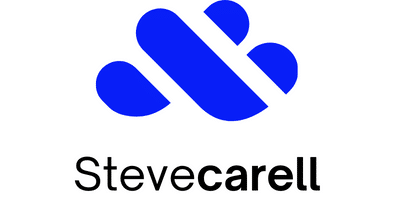What Are the Challenges and Benefits of Integrating Blockchain into UK’s Public Health Records?

Blockchain technology has been growing at a rapid pace, transforming various sectors across the globe. The healthcare sector, in particular, has been eyeing the potential of this revolutionary technology, with a focus on the management of patient medical records. The United Kingdom is one of the countries leading the drive towards integrating blockchain technology into public health records. While the benefits are undeniable, the challenges that come with this transition cannot be overlooked.
The Promising Potential of Blockchain in Healthcare
Before delving into the benefits and challenges of integrating blockchain in the healthcare sector, it’s important to understand what the technology entails. Blockchain is a system of recording information in a way that makes it difficult or impossible to change, hack, or cheat the system. It is essentially a digital ledger of transactions that is duplicated and distributed across the entire network of computer systems on the blockchain.
A découvrir également : Back-up and offshore hosting: the perfect anti-damage solution
In the context of healthcare, blockchain can be used to create a more secure, interoperable, and patient-centric system for managing health records.
The primary benefit of using blockchain in healthcare is the enhanced security and privacy of patient records. The technology uses cryptographic techniques to ensure that data is tamper-proof and only accessible to authorized individuals.
En parallèle : What’s the Future of Autonomous Public Transport in Urban UK?
Moreover, blockchain-based healthcare systems can offer improved interoperability. Currently, most health record systems operate in silos, making it difficult for the seamless sharing of patient data across different healthcare providers. Blockchain technology can enable a decentralized system where all health records can be accessed and shared efficiently, with the patient’s consent.
Furthermore, blockchain can empower patients to have more control over their health data. They can decide who can access their medical records and what information they can access. This shift towards patient-centric care can potentially improve the overall quality of healthcare services.
The Hurdles in Blockchain Adoption
Despite the promising potential, the integration of blockchain in healthcare comes with its own set of challenges.
One of the main hurdles is the lack of a legal and regulatory framework that deals with blockchain in healthcare. The technology is emerging, and the laws and regulations are yet to catch up. This can create uncertainties for healthcare providers and can potentially inhibit the widespread adoption of the technology.
Another challenge is the technical intricacy associated with blockchain technology. It requires a complex infrastructure and technical expertise, both of which can be significant barriers for healthcare providers, particularly the public health sector with often limited resources.
Data privacy is another significant concern. Although blockchain can enhance the security of health records, it also raises questions about data ownership and control. Who owns the data on the blockchains? How can patient privacy be ensured? These are some critical questions that need to be addressed.
The Role of Crossref and Scholarly Articles in Blockchain Adoption
In the era of digital information, scholarly articles and academic platforms like Crossref play a crucial role in the widespread adoption of new technologies, including blockchain.
Crossref is an organization that enables the seamless sharing of scholarly works, making research outputs easy to find, cite, link, and assess. In the context of blockchain, Crossref can facilitate the sharing and dissemination of research on the implementation of blockchain technology in healthcare.
Such scholarly articles can provide valuable insights into the benefits and challenges of blockchain in healthcare, drawing from case studies and empirical research. They can contribute to the development of new strategies and policies to overcome the challenges and maximize the benefits of the technology.
The Path Forward for Blockchain in UK’s Healthcare
The integration of blockchain in healthcare is not a matter of ‘if’, but ‘when’. The technology has the potential to revolutionize the way health records are managed, making them more secure, interoperable, and patient-centric. However, the transition will not be without its challenges.
Moving forward, there is a need for a comprehensive legal and regulatory framework that deals with the integration of blockchain in healthcare. The uncertainties surrounding the legal and regulatory aspects of blockchain need to be addressed to foster trust and confidence among healthcare providers.
Developing technical competencies in blockchain is another crucial factor. Investing in training and infrastructure development can help overcome the technical challenges associated with the technology.
Lastly, ensuring data privacy and patient control over their health records is crucial. Blockchain can potentially enhance data security, but it also raises questions about data ownership and control. These issues need to be addressed to ensure the successful integration of blockchain in healthcare.
The path towards integrating blockchain into the UK’s public health records may be challenging, but the potential benefits it can bring make it worth the effort. With proper planning and strategic implementation, the UK healthcare sector can harness the full potential of this revolutionary technology.
The Nexus of Blockchain and Google Scholar in Healthcare
Understanding the interface of blockchain technology and Google Scholar in healthcare provides key insight into the potential of encrypted data management systems. Google Scholar, a widely-used web search engine for scholarly literature, provides an extensive database of information, including patents and theses across a myriad of academic publishers and professional societies.
In the context of blockchain, Google Scholar can serve as a pivotal platform for the dissemination of research on the application of this technology in healthcare. The available literature can pave the way for fostering a better understanding of the technical intricacies of blockchain, its potential benefits and the challenges it presents.
Blockchain-based research on Google Scholar can encompass various aspects, including the use of smart contracts in maintaining data integrity, the application of blockchain for access control in medical records, and the implication of blockchain in the supply chain of healthcare. A systematic review of such literature can provide a comprehensive understanding of the potential and limitations of blockchain in healthcare.
Moreover, emerging research on Google Scholar can address the critical questions related to blockchain, such as data ownership, security privacy, and patient control over health data. It can also provide a platform for the development of new strategies and policies for blockchain integration in healthcare.
Electronic Health Records on Blockchain: A Way Forward
The future of public health records in the United Kingdom is intertwined with blockchain technology. By harnessing blockchain for managing electronic health records (EHR), the UK healthcare sector can benefit from a more secure and efficient system.
Blockchain-based EHR systems can leverage smart contracts, an essential feature of blockchain technology, to automate the data sharing process and maintain data integrity. Smart contracts are self-executing contracts where the agreement between the buyer and the seller is directly written into lines of code. In the context of health records, smart contracts can automate the access control process, ensuring that health data is only accessible to authorized individuals.
Moreover, blockchain can enhance the security privacy of health records. By using cryptographic techniques, blockchain can ensure that health data is tamper-proof and only accessible to those who have the consent of the patients.
Despite the promising potential, the transition to blockchain-based EHR systems will not be without challenges. The technical complexity, the lack of a clear legal framework, and privacy concerns are some of the main hurdles that need to be addressed. However, with strategic planning and investment in infrastructure and training, it is possible to overcome these challenges.
The integration of blockchain into the UK’s public health records is a bold step towards a more secure and efficient healthcare system. It is an investment in the future of healthcare, one that can bring significant benefits for patients and healthcare providers alike. With the right strategies and policies in place, the UK can lead the way in the adoption of blockchain in healthcare.
